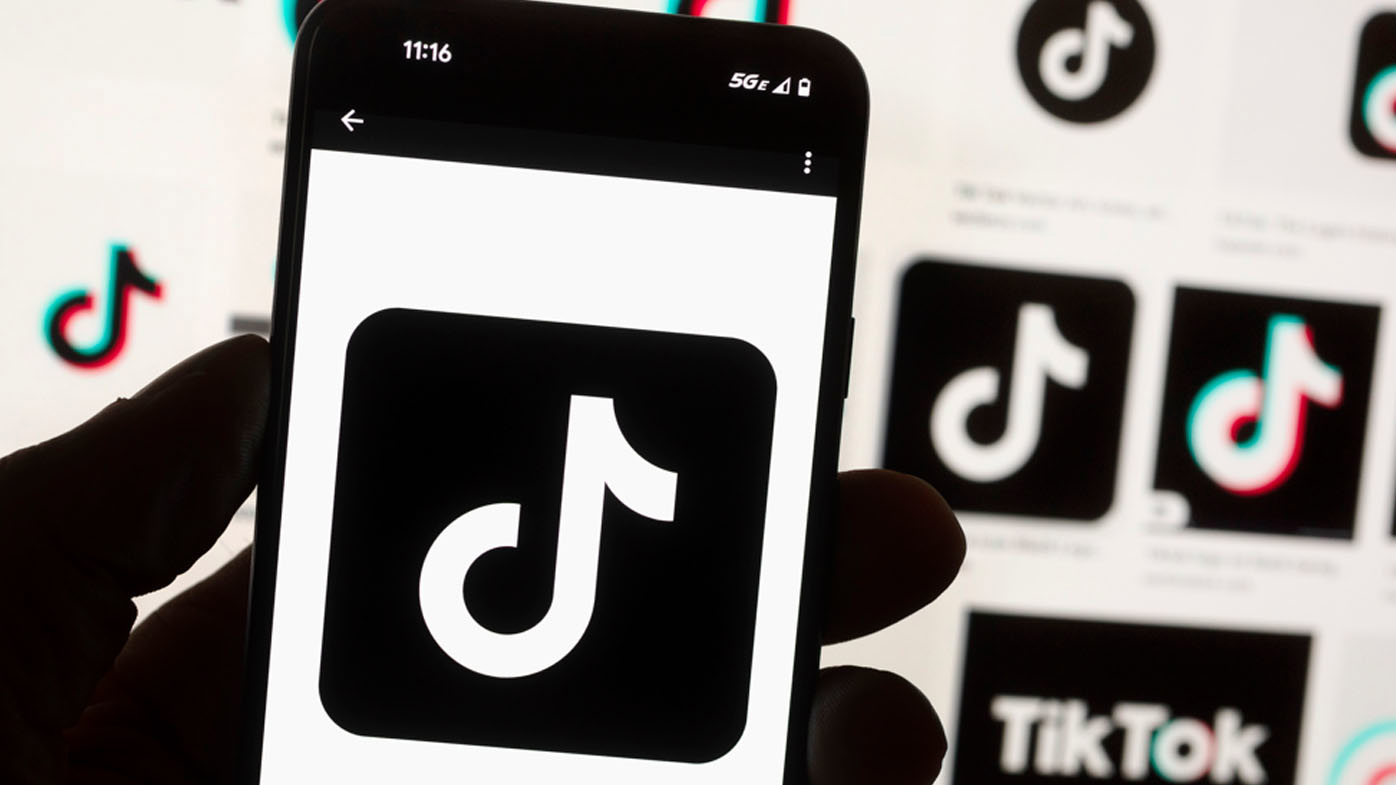
More than a dozen US states and the District of Columbia have filed lawsuits against TikTok, alleging the popular short-form video app is harming youth mental health by designing its platform to be addictive to kids.
The lawsuits filed on Tuesday stem from a national investigation into TikTok, which was launched in March 2022 by a bipartisan coalition of attorneys-general from many states, including New York, California, Kentucky and New Jersey. All of the complaints were filed in state courts.
At the heart of each lawsuit is the TikTok algorithm, which powers what users see on the platform by populating the app’s main “For You” feed with content tailored to people’s interests.
READ MORE: Aussie company reveals how four-day week is going
The lawsuits also emphasise design features that they say make children addicted to the platform, such as the ability to scroll endlessly through content, push notifications that come with built-in “buzzes” and face filters that create unattainable appearances for users.
In its filings, the District of Columbia called the algorithm “dopamine-inducing” and said it was created to be intentionally addictive so the company could trap many young users into excessive use and keep them on its app for hours on end.
TikTok does this despite knowing that these behaviours will lead to “profound psychological and physiological harms” such as anxiety, depression, body dysmorphia and other long-lasting problems, the complaint said.
“It is profiting off the fact that it’s addicting young people to its platform,” District of Columbia Attorney-General Brian Schwalb said in an interview.
TikTok spokesman Alex Haurek said the company “strongly disagree with these claims, many of which we believe to be inaccurate and misleading”.
“We’re proud of and remain deeply committed to the work we’ve done to protect teens and we will continue to update and improve our product,” he said.
READ MORE: Millions brace as storm of the century heads for US
“We’ve endeavoured to work with the Attorneys-General for over two years, and it is incredibly disappointing they have taken this step rather than work with us on constructive solutions to industrywide challenges.”
The social media firm does not allow children under 13 to sign up for its main service and restricts some content for everyone under 18. But Washington and several other states said in their filing that children can easily bypass those restrictions, allowing them to access the service adults use despite the company’s claims that its platform is safe for children.
“TikTok claims that is safe for young people, but that is far from true. In New York and across the country, young people have died or gotten injured doing dangerous TikTok challenges and many more are feeling more sad, anxious, and depressed because of TikTok’s addictive features,” New York Attorney General Letitia James said in a statement.
READ MORE: Thousands without power as heavy rain, winds lash Queensland
Their lawsuit also takes aim at other parts of the company’s business.
The district alleges TikTok is operating as an “unlicensed virtual economy” by allowing people to purchase TikTok Coins – a virtual currency within the platform – and send “Gifts” to streamers on TikTok LIVE who can cash it out for real money.
TikTok takes a 50 per cent commission on these financial transactions but hasn’t registered as a money transmitter with the US Treasury Department or authorities in the district, according to the complaint.
Officials say teens are frequently exploited for sexually explicit content through TikTok’s LIVE streaming feature, which has allowed the app to operate essentially as a “virtual strip club” without any age restrictions. They say the cut the company gets from the financial transactions allows it to profit from exploitation.
READ MORE: Was this the way to solve bin noise quandary?
The 14 attorneys-general say the goal of their lawsuits is to stop TikTok from using these features, impose financial penalties for their alleged illegal practices and collect damages for users that have been harmed.
Many states have filed lawsuits against TikTok and other tech companies over the past few years as a reckoning grows against prominent social media platforms and their ever-growing impact on young people’s lives. In some cases, the challenges have been coordinated in a way that resembles how states previously organised against the tobacco and pharmaceutical industries.
Last week, Texas Attorney General Ken Paxton sued TikTok, alleging the company was sharing and selling minors’ personal information in violation of a new state law that prohibits these practices.
TikTok, which disputes the allegations, is also fighting against a similar data-oriented federal lawsuit filed in August by the Department of Justice.
Several Republican-led states, such as Nebraska, Kansas, New Hampshire, Kansas, Iowa and Arkansas, have also previously sued the company, some unsuccessfully, over allegations it is harming children’s mental health, exposing them to “inappropriate” content or allowing young people to be sexually exploited on its platform.
Arkansas has brought a legal challenge against YouTube, as well as Meta Platforms, which owns Facebook and Instagram and is being sued by dozens of states over allegations its harming young people’s mental health. New York City and some public school districts have also brought their own lawsuits.
TikTok, in particular, is facing other challenges at the national level. Under a federal law that took effect earlier this year, TikTok could be banned from the US by mid-January if its China-based parent company ByteDance doesn’t sell the platform by then.
Both TikTok and ByteDance are challenging the law at an appeals court in Washington. A panel of three judges heard oral arguments in the case last month and are expected to issue a ruling, which could be appealed to the US Supreme Court.
FOLLOW US ON WHATSAPP HERE: Stay across all the latest in breaking news, celebrity and sport via our WhatsApp channel. No comments, no algorithm and nobody can see your private details.
links to content on ABC
9News





